Author(s):
Piero Pelizzaro
MILAN AT MCR2030: TRANSFORMING STREETS WITH TACTICAL URBANISM
Source(s):
Municipality of Milan
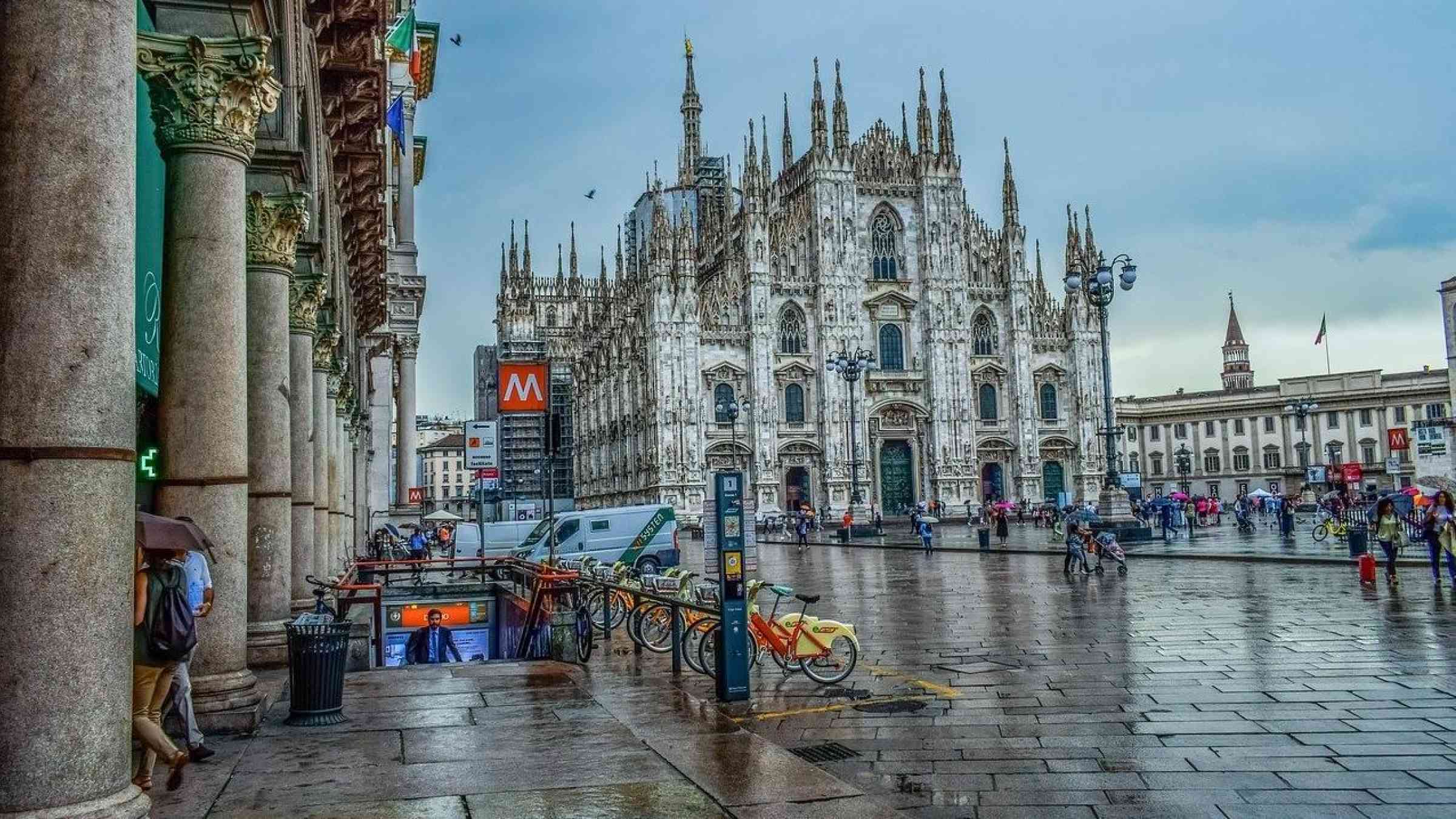
Dimitris Vetsika/Pixabay
Milan is experiencing a period of profound renewal that has demonstrated the great level of adaptation of the city. Nowadays, public administrations face more than ever the so-called ‘wicked problems’, complex and articulated challenges among which climate change stands out. In the last 50 years, mean annual temperatures in Milan increased by 2°C, and heavy rains became more and more frequent, causing overflow and flooding phenomena. At the same time, this trend results in less severe winters and an increase in the average duration of heat waves. Dealing with climate risks in Milan means protecting the city from the social, economic and environmental perspective: in a city where population density is close to 7,700 inhabitants/km2, adapting and responding to the impacts of climate change is not just an environmental issue, but a matter of exposure reduction, equity and vulnerability management.
In recent years, the city has moved towards a cross-sectoral ecological transition to become a greener, more resilient and livable city, supported by the establishment of the Environmental Transition Department in 2019. Among the different solutions identified with the Air and Climate Plan to mitigate climate change, Milan has decided to make use of the so-called Nature Based Solutions approach – NBS - to increase its adaptive capacity. In addition to the environmental benefits, NBS are an excellent way to manage hydraulic risk, especially with regards to flooding events and flooding due to run-off: the danger of each event is related to the speed with which stormwater pours on the urban surface and the inability of the urbanized fabric to absorb them due to the high rate of impermeability.
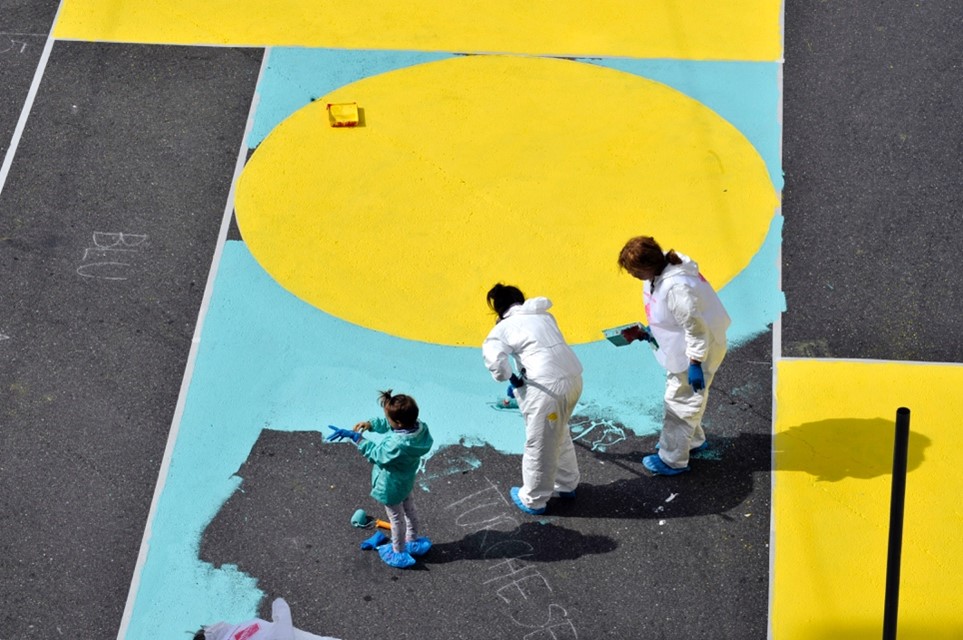
Designing new ways to live in open spaces
Milan’s DNA is founded on sociality, work, times and spaces sharing: this is one of the reasons why the city particularly suffered from the stroke of the Covid-19 pandemic which limited, and in some cases prohibits, interactions for a long time. The lesson the Municipality learned from this traumatic experience is that, nowadays, being a resilient city means not only managing climate related risks, but also being prepared for every possible threat that may affect and grow exponentially in highly densified territories. The city decided to address the emergency by planning activities, initiatives and temporary projects in support of long-term plans, strategies and actions of the Municipality.
To do that, the city tried to find answers to a key question ‘How can the fundamentals of environmental transition guide this path and develop a new Green Deal that generates wealth for all?’.
The main objectives are to understand and design new ways to live in open spaces and, simultaneously, create and enhance a new shared vision of a healthier Milan.
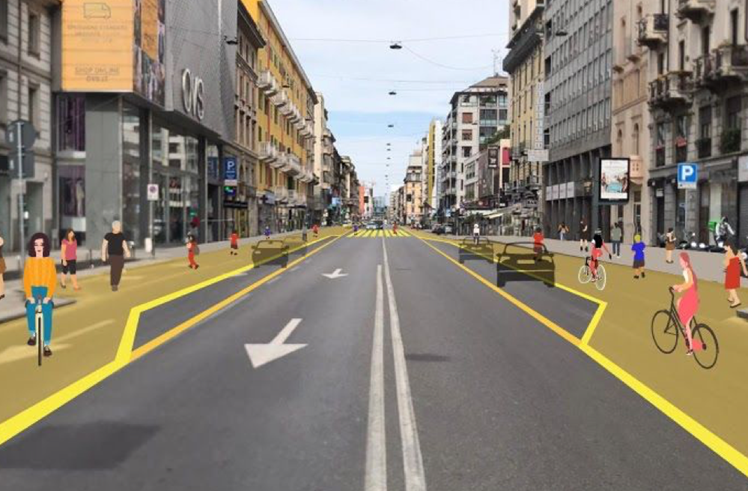
Piazze Aperte, features among the existing projects that the Municipality wanted to strengthen. Started in 2018 (with Bloomberg Associates, National Association of City Transportation Official (NACTO) and Global Designing Cities Initiatives), the program aims to bring public squares back to the center of the neighborhoods’ life. Thanks to tactical urbanism, the city succeeded both in involving citizens in the process of urban regeneration and in fast prototyping new urban frameworks by using short-term, cheap and scalable interventions.
During the Covid-19 pandemic, the Piazze Aperte program became even more relevant since it represented a landmark for the community and a safe meeting point in the neighborhood.
As part of “Milano Adaptation Strategy 2020”, that developed a local scale strategy for the so-called "Phase 2" after the COVID-19 emergency, the city developed new lines of action that offered a vision of a Milan as more inclusive, flexible, participatory, with fast and effective interventions to improve the quality of life.
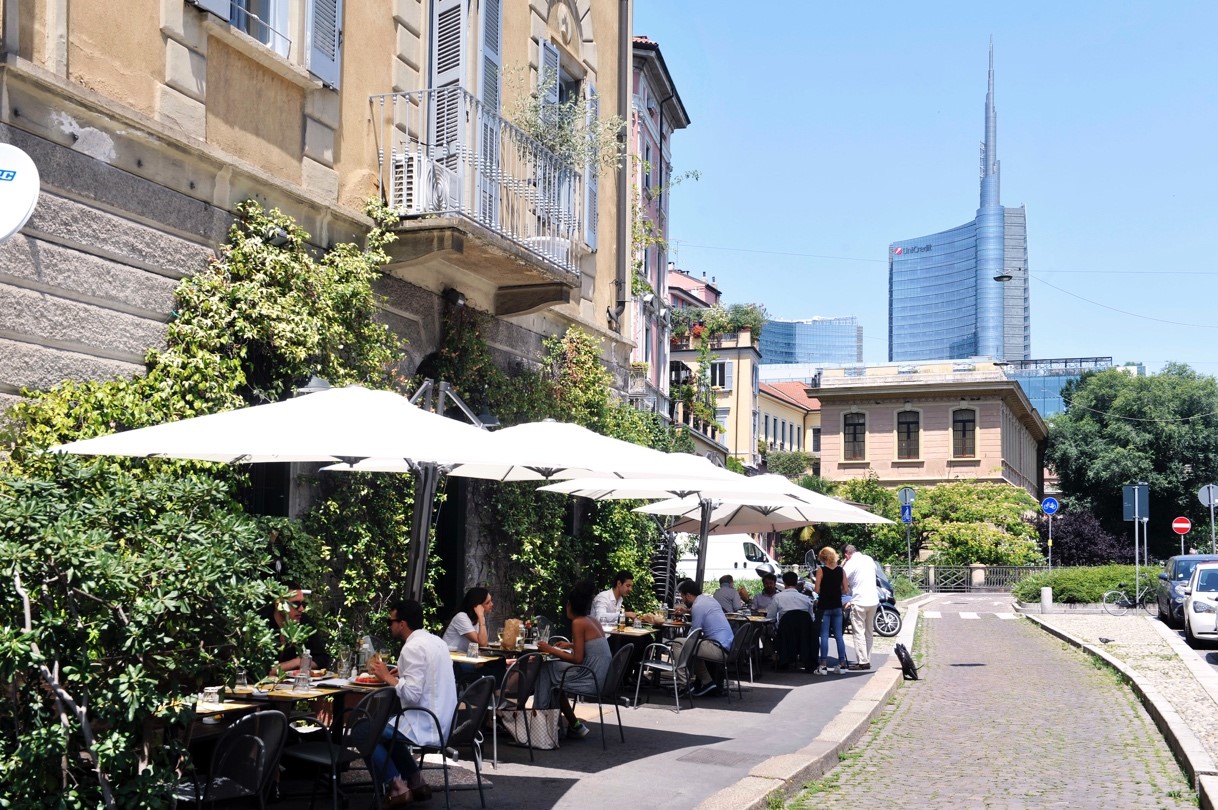
In line with the Piazze Aperte example, Milan decided to experiment with tactical urbanism in a different way in the “Strade Aperte” Program (Open Streets). In the context of the COVID-19 pandemic the use of roads and public spaces had to be redefined to support a diffuse use of bicycles, scooters and other forms of micro- and light mobility, that respect social distancing. Since then, during the summer 2020, 35 km of new bike lanes have been introduced, extending the existing bike lane system to with over 100 km in April 2021.
Within the perimeter of the Strade Aperte project, in May 2020 the Municipality of Milan defined a series of regulations thanks to which more than 2,400 commercial activities have been able to recover outside the spaces sacrificed inside under the social distancing measures.
The City's measures define sidewalk and pedestrian island areas, roadways, and green spaces as occupiable. Moreover, at the end of 2020, guidelines on how to occupy public spaces have been added to the regulation in order to ensure both security and regular street flows. Such interventions facilitate the arrangement of tables for bars and restaurants with the aim of recovering part of the lost occupancy of interior spaces, while encouraging the use of green solutions.
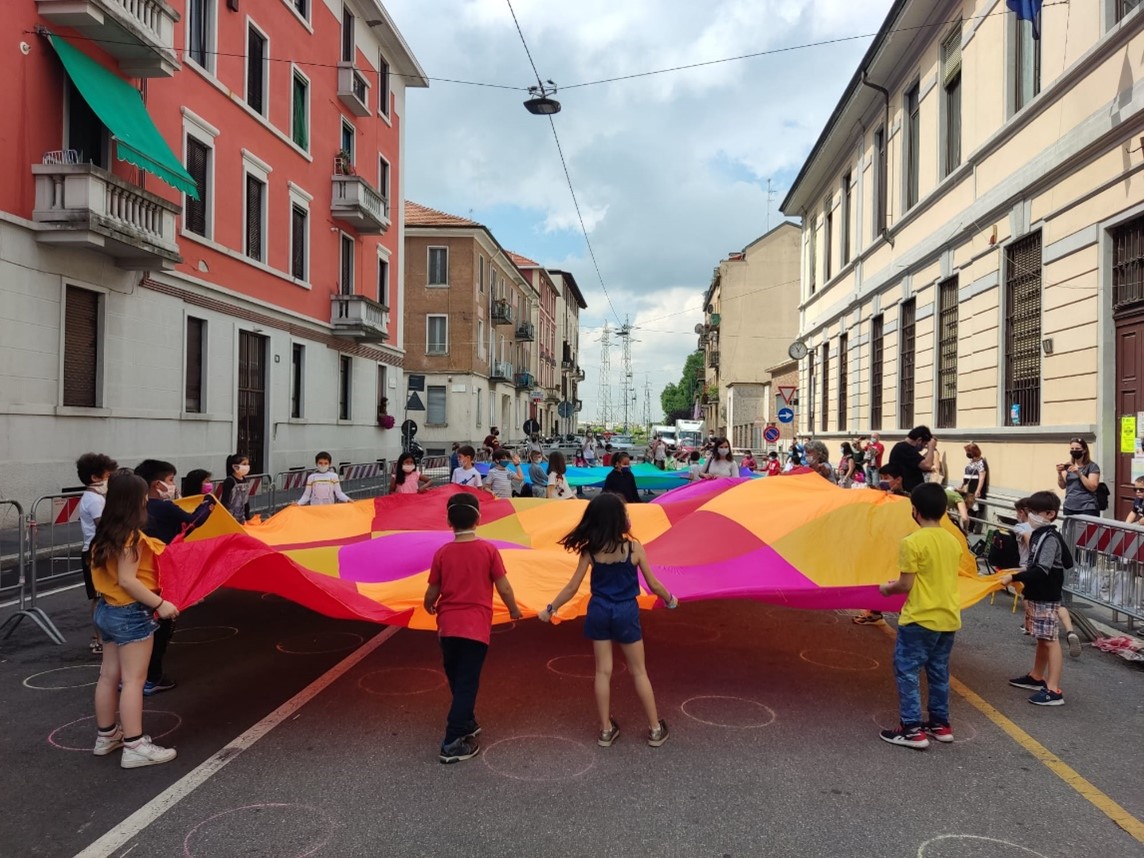
In the action of rethinking public spaces, the Municipality together with ARUP and the Real Play Coalition, have given birth to Play Streets. Play Streets are roads temporarily closed to traffic during certain hours of the day, increasing the supply of play spaces for children and local residents, becoming a safe place to ride a bike, draw with chalk, kick a ball, or just hang out. The Municipality of Milan intends to experiment with the Play Street tool in the vicinity of schools, to allow children to enjoy additional spaces to play and have fun after school hours.
The Next Generation EU, and the package of interventions deriving from it as a response to the economic emergency caused by the health crisis, offer valuable opportunities to define the cities of the coming years. Milan has decided to seize this opportunity to strengthen the strategies already adopted in recent years and improve them through more structural and lasting interventions. The goal is to build an inclusive, healthy and innovative Milan.
By becoming part of Making Cities Resilient 2030, the city of Milan is looking forward to exploring the knowledge and experiences of other cities, as well as exchanging useful practices. Milan is eager to learn more and more about managing the climate crisis and how to prevent climate disasters. In the coming years, cities will be on the frontlines in the fight against climate change. MCR2030 will be an excellent contact point to combine efforts of different urban contexts of all over the world.
Explore further
Country and region
Italy

